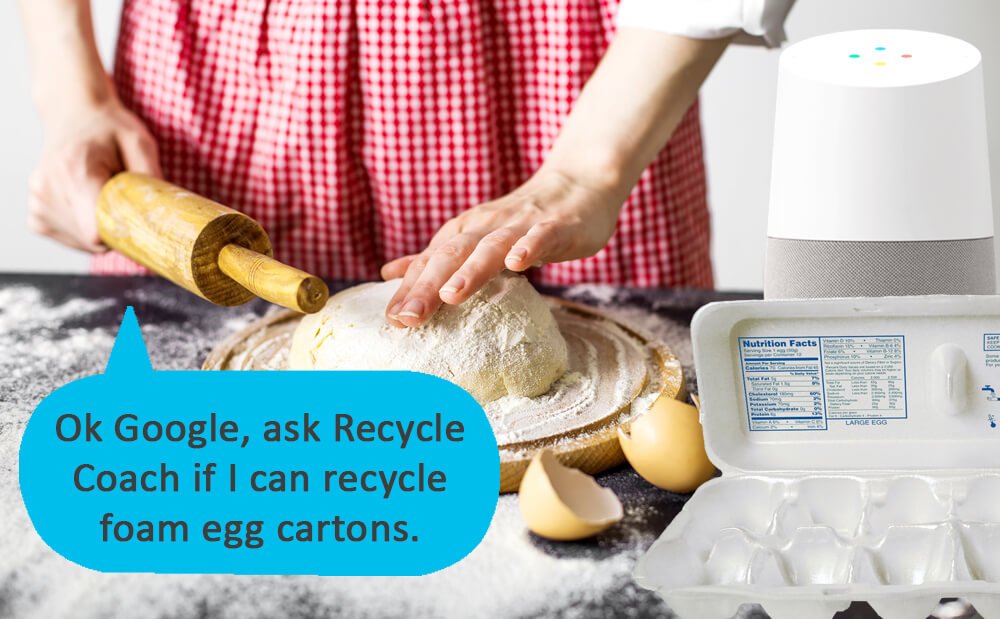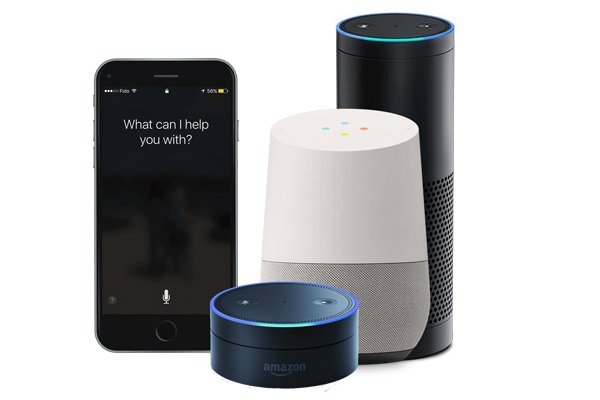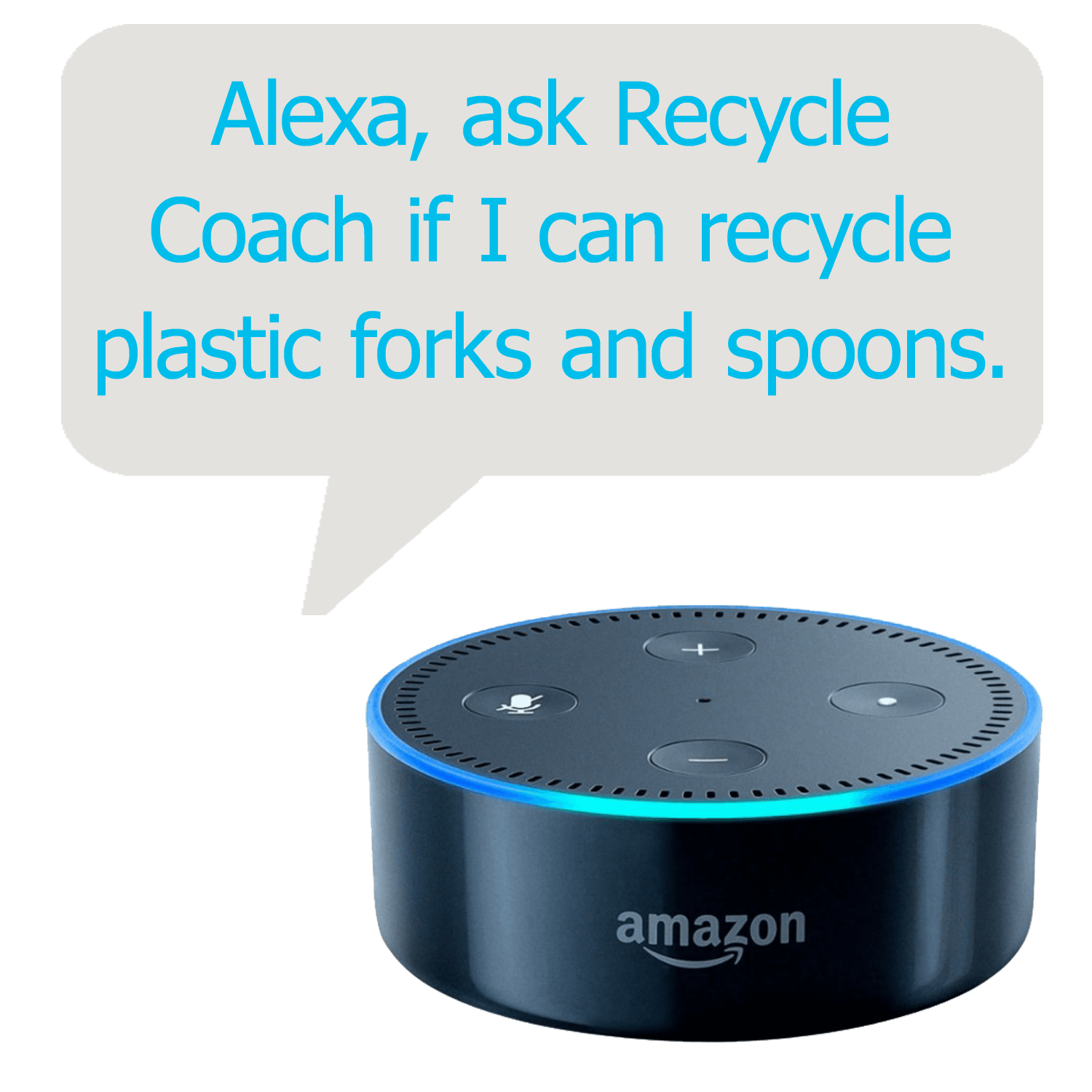5 Reasons to Integrate Your Recycling Information With Digital Assistants

 Voice-activated digital assistants have come a long way.
Voice-activated digital assistants have come a long way.
When they first came out, they only had the ability to set alarms or perform basic tasks. However, they can now order pizzas, create shopping lists, play music, turn lights on/off, tell you your local weather, and much more. As the technology makes its way into every resident’s home, they will be streamlining more aspects of daily living, including helping residents recycle better – and recycle more accurately.
If you’re not already convinced, here are 5 reasons you should consider integrating your recycling program’s information with digital assistants now:
- 35.6 million Americans will have used a device like Google Home or Amazon Echo at least once a month this year (2017). With a growing number of residents using digital assistant devices, it’s crucial to provide recycling information on platforms they are already using – and making sure that information is consistent, accurate, and comes directly from you.Recycle Coach is fully integrated with Google Home and Alexa. When you sign up with Recycle Coach, you can customize the responses from the digital assistants so it reflects your recycling program. For example, if you partner with local retailers to offer residents a plastic bag take-back program, let them know when they ask their Google Home or Amazon Echo.
 There is a shift away from screen-based interfaces toward voice based.
There is a shift away from screen-based interfaces toward voice based.
According to the US Census Bureau: Globally, the native digital assistant installed base is set to exceed 7.5 billion active devices by 2021, which is more than the world population.Billy Hulkower, Senior Technology and Media Analyst at Mintel adds, “The next 10 years will be marked by a transition away from screen-based interfaces and toward voice-based interfaces provided by digital assistants, such as Amazon Echo’s Alexa, Google Home’s Assistant, Microsoft’s Cortana, Samsung’s Bixby, and Apple’s Siri.”Get ahead and integrate your recycling information now so you don’t miss out on key opportunities to effectively educate a large segment of your residents.
- Residents can get more local, personalized information with digital assistants.
“Mobile voice-related searches are 3X more likely to be local-based than text” according to Search Engine Watch.Similar to how a search engine understands a user’s likes and dislikes so it can show better search results, digital assistants ‘learn’ from their users and adjusts itself based on the person using it.Additionally, with your resident’s location already known on their digital assistants, all information provided will be automatically personalized according to their location/municipality.
- More channels means more opportunities to reach and educate residents.
Today, residents from municipalities of all sizes are tuned into a multitude of channels, so the more channels you use, the more residents you’ll be able to reach and educate. Being strategic with your communications plan means leveraging both traditional and digital channels to reach more residents, within a range of demographics. - Collect more data to better understand how residents recycle.
The more people that use technology (such as mobile apps, web apps, and digital assistants) to find recycling information, the more data you’ll collect. Find out answers to questions like:- What items are people most confused about?
- What are the most common questions residents are searching for in terms of recycling?
- What channels or platforms are residents tuning into the most to find answers to their recycling questions?
You can then use this data to improve your education outreach materials and boost your recycling program.